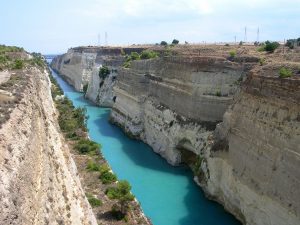 Gaius Musonius Rufus was one of the foremost Stoic philosophers of the Roman Imperial period. He was even described as the “Roman Socrates”. Little is known about his life or thought, however, apart from a handful of surviving lectures and sayings, and some scattered references about him by other authors. Musonius is best known as the teacher of Epictetus, the only Stoic teacher whose books survive today. (At least, we have four of eight volumes of Discourses recorded by Epictetus’ student Arrian.)
Gaius Musonius Rufus was one of the foremost Stoic philosophers of the Roman Imperial period. He was even described as the “Roman Socrates”. Little is known about his life or thought, however, apart from a handful of surviving lectures and sayings, and some scattered references about him by other authors. Musonius is best known as the teacher of Epictetus, the only Stoic teacher whose books survive today. (At least, we have four of eight volumes of Discourses recorded by Epictetus’ student Arrian.)
Several references to Musonius can be found in Philostratus’ Life of Apollonius. Apollonius of Tyana was an extremely famous Neo-pythagorean philosopher, and a contemporary of both Musonius and Epictetus.
Nero did not tolerate philosophy. Its practitioners he considered inquisitive creatures who concealed a power of divination, and the philosopher’s cloak was once used in evidence as the proof of a diviner. To mention only one, Musonius of Babylon [sic.], a man second only to Apollonius, was put into chains because of his wisdom and during his confinement was in danger of his life. In fact he would have died for all his oppressor cared, if he had not had a very strong constitution. (Life of Apollonius, 4.35)
Scholars consider the reference to Babylon here to be a corruption in the text and that the Musonius in question is indeed the Stoic, Musonius Rufus. The grey cotton cloak was worn by most philosophers, particularly Stoics and Cynics.
It was at this time that Musonius, who is reputed to have been the most outstanding philosopher that ever was, was jailed in Nero’s prisons. He and Apollonius did not converse with one another openly, since Musonius was opposed to that in case they were both endangered. They conversed, however, by letter through visits of Menippus and Damis to the prison. I will leave aside the letters that concern unimportant subjects, and write down the essential ones and those that give an insight of greatness.
‘Apollonius greets Musonius the philosopher.
‘I want to come to you and share your convesation and your shelter, in order to do you a favour. If you do not disbelieve the tale of Hercules rescuing Theseus from Hades, write to me what you have decided. Goodbye.’
‘Musonius greets Apollonius the philosopher.
‘You will have everlasting praise for your plan. But a true man undertakes his defence and shows his innocence. Goodbye.’
‘Apollonius to Musonius the philosopher.
‘Socrates of Athens preferred not to be rescued by his friends, and so came to court and was executed. Goodbye.’
‘Musonius to Apollonius the philosopher.
‘Socrates died because he had not prepared to defend himself. I will defend myself. Goodbye.’ (Life of Apollonius, 4.46)
Many supernatural powers were attributed to Apollonius and in these letters it’s suggested that he was offering to rescue Musonius from Nero’s prison. Musonius refuses the offer, saying that unlike Socrates he is prepared and capable of defending himself before the court. Musonius was exiled by Nero to the island of Gyaros around 65AD.
Musonius the Etruscan, too, often opposed Nero’s rule, but the emperor confined him on the island called Gyara. The Greeks are so devoted to these sophists [wise men] that on occasion they all sailed to visit him, and now do so to see the fountain. The island had been waterless before, but Musonius discovered a fountain about which the Greeks have as many stories as they do about the horse’s fountain on Helicon. (Life of Apollonius, 7.16)
At a later date, in Athens, Apollonius meets another philosopher, Demetrius, who said he’d met Musonius. (We don’t know which Demetrius he means but it’s possibly Demetrius of Corinth, a famous contemporary Cynic.) Musonius was in chains and performing hard labour, digging a canal through the Isthmus of Corinth, a narrow strip of land that connects the Peloponnese peninsula to the rest of mainland Greece. Being able to sail through a canal rather than around the Peloponnese would have been of great benefit to the ancient world. In 67 AD, Nero commanded 6,000 slaves to dig the Corinth canal with pickaxes and spades but a year after work commenced he died and the project was abandoned. The slaves and prisoners had progressed about one tenth of the way (700 metres). Despite several attempts, the canal wasn’t completed until 1893.
Demetrius said he had seen Musonius at the Isthmus working in chains and compelled to dig. He himself, naturally, had expressed outrage, but Musonius clutched his pickaxe and struck the ground vigorously, and then stood up and said, ‘Does it pain you, Demetrius, to see me digging the Isthmus for the good of Greece? What would you have felt if you had seen me playing the lyre like Nero?’ There are other even more admirable remarks of Musonius, but I had better not mention them. I do not want to be thought to be drawing an unwise comparison between myself and the man who made them so offhandedly. (Life of Apollonius, 5.19)
There is a surviving satirical dialogue attributed falsely to Lucian, portraying Musonius at the Isthmus.



